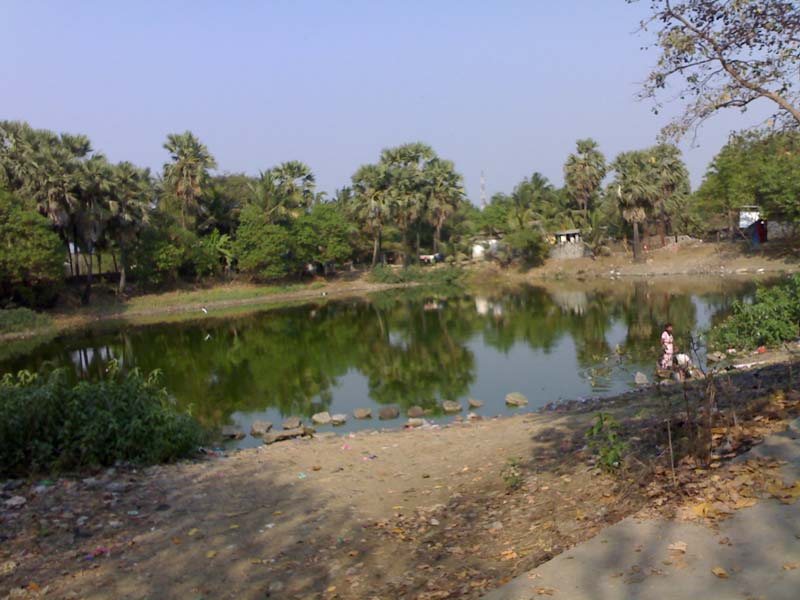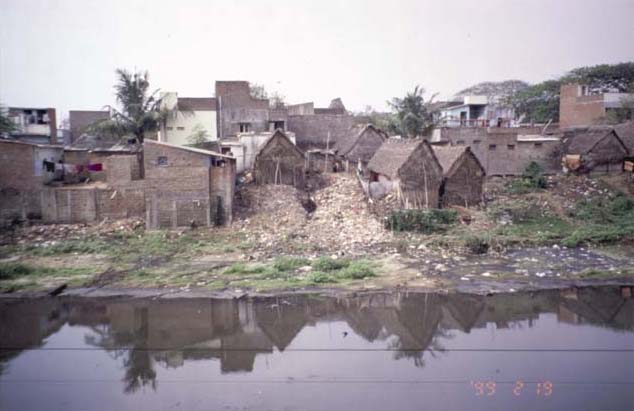/regions/mumbai-district
Mumbai District
Water poverty in urban India - A study of major cities - A seminar paper - Tata Institute of Social Sciences
Posted on 05 Nov, 2011 12:02 PMThis seminar paper submitted for the UGC Summer Programme at the Jamia Millia Islamia University describes the findings of a study that explored the quantity of water used in domestic households vis-à-vis the recommended quantity of water consumption in seven major Indian cities, n
Lakes in Mumbai – A draft report by WWF India
Posted on 01 Nov, 2011 08:59 PM This draft report on the study of lakes by the World Wildlife Fund for Nature (India) documents the physical condition of the lakes in Mumbai. Apart from the three lakes - Tulsi, Powai and Vihar that used to provide water to Mumbai residents, there are many lakes in the Bombay Municipal Corporation jurisdiction that are either polluted by human sewage or industrial effluents and have remained neglected with increasing urbanization.
This draft report on the study of lakes by the World Wildlife Fund for Nature (India) documents the physical condition of the lakes in Mumbai. Apart from the three lakes - Tulsi, Powai and Vihar that used to provide water to Mumbai residents, there are many lakes in the Bombay Municipal Corporation jurisdiction that are either polluted by human sewage or industrial effluents and have remained neglected with increasing urbanization.
There is very little to no data available on the existence of lakes of Mumbai. Several RTI’s to the government bodies also revealed that there was a lacuna in terms of the availability of the data; as a result most of the water bodies are easily exploited. Under this study the baseline data was prepared with the help of Google Earth website. The areas appearing to be lakes were marked on the Google Earth Images. These were verified by the field staff through onsite visits. The survey was conducted during September and October, 2008 and March, 2009. The study considers only the fresh water lakes which were accessible and saline water impoundments have not been considered.
Where and how is the state - Accessing water and the state in Mumbai and Johannesburg - Journal of Asian and African Studies
Posted on 29 Oct, 2011 05:28 PMThis paper published in the Journal of Asian and African Studies examines the argument that the political and institutional contexts of service delivery shape people's access to the state and its resources and also the mediation between citizens and g
BNHS invites applications for Research Fellows for House Sparrow Project, Mumbai – Apply by October 14, 2011
Posted on 09 Oct, 2011 09:21 AM 
Bombay Natural History Society (BNHS) – a membership-driven organization - has been promoting the cause of a natural India for the past 127 years since 1883. It was started by 8 Mumbai citizens, of which two were Indians. The Society's guiding principle has always been that conservation must be based on scientific research - a tradition exemplified by its former president, late Dr Sálim Ali. Designated as a Scientific and Industrial Research Organization (SIRO) by Department of Science & Technology, Government of India.
Reap what you sow, eat what you grow A film by Suma Josson on urban community farms promoted by Urban Leaves in Mumbai
Posted on 24 Sep, 2011 06:21 PMReap what you sow, eat what you grow - A film by Suma Josson
It depicts how applying ecological principles and practices to maintain soil fertility, to manage crop health, and to keep soil and water in a good condition is especially relevant to the urban setting. The film focuses on the work being done in the urban farms, yet it can be seen as much more than that and, understood as a vision on healthy products, healthy production systems and as a way of life.
Water for Indian cities - Government practices and policy concerns - Issue Brief - Observer Research Foundation
Posted on 24 Sep, 2011 04:50 PMThe urban expansion in India has not been met by a similar expansion in infrastructure and basic services. This has severely affected the quality of urban life and economic growth.
Tata Institute of Social Sciences invites papers for a three-day Conference on Globalisation and Social Transformation in Mumbai – Apply by September 30, 2011
Posted on 17 Sep, 2011 08:50 PMOrganizer: Tata Institute of Social Sciences
Venue: Mumbai

The Tata Institute of Social Sciences (TISS), Mumbai is a reputed institution that has influenced the direction of social work education and social research in India. It has earned recognition as an institution of repute from different Ministries of the Government of India, various State Governments, international agencies such as the United Nations, and the non-government sector, both national and international.
3rd annual rural marketing excellence, Gripel, July 8 – 9, 2011, Mumbai
Posted on 28 Jun, 2011 06:12 PM Organizer: Gripel
Organizer: Gripel
Venue: Mumbai
Topics:
- Opportunities in tapping India's rural market, exploring the growth Potentials & government initiatives effectively for a win-win situation between urban sellers and rural buyers
- Getting connected with the rural ‘mindset’ & sentiments of rural consumer
Urban floods in Bangalore and Chennai – Risk management challenges and lessons for sustainable urban ecology – A paper in Current Science
Posted on 22 Jun, 2011 10:23 PM Two important metro cities of India, viz. Bangalore and Chennai are discussed. The aim of the study was to understand the problems of increasing flooding incidences in urban areas and related contexts of urban development and ecological issues. Data of secondary origin have been collected and interpreted in the context of flood risks and urban management. The paper also conveys wider issues and lessons for flood challenges in Indian cities and towns.
Two important metro cities of India, viz. Bangalore and Chennai are discussed. The aim of the study was to understand the problems of increasing flooding incidences in urban areas and related contexts of urban development and ecological issues. Data of secondary origin have been collected and interpreted in the context of flood risks and urban management. The paper also conveys wider issues and lessons for flood challenges in Indian cities and towns.
Why Mumbai must reclaim its Mithi – A study by Observer Research Foundation
Posted on 08 Jun, 2011 05:05 PMThe river, along with its estuarine reach, provides the much-needed green lungs to the city in the form of mangroves. Neglect of this river was the main cause of the catastrophic floods in Mumbai on 26 July, 2005, which claimed nearly 1,000 lives. In what could be a monumental urban transformation initiative to be undertaken anywhere in India yet, ORF has proposed a grand vision for the reclamation of Mithi River. The study report and a documentary film ’Making the sewer a river again - Why Mumbai must reclaim its Mithi’ on the dreadful conditions of the river, was released in May, 2011 in Mumbai.